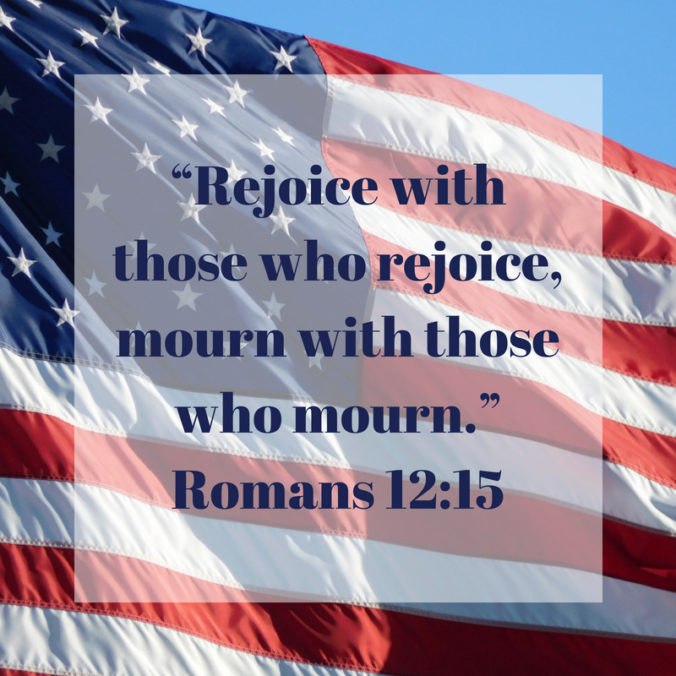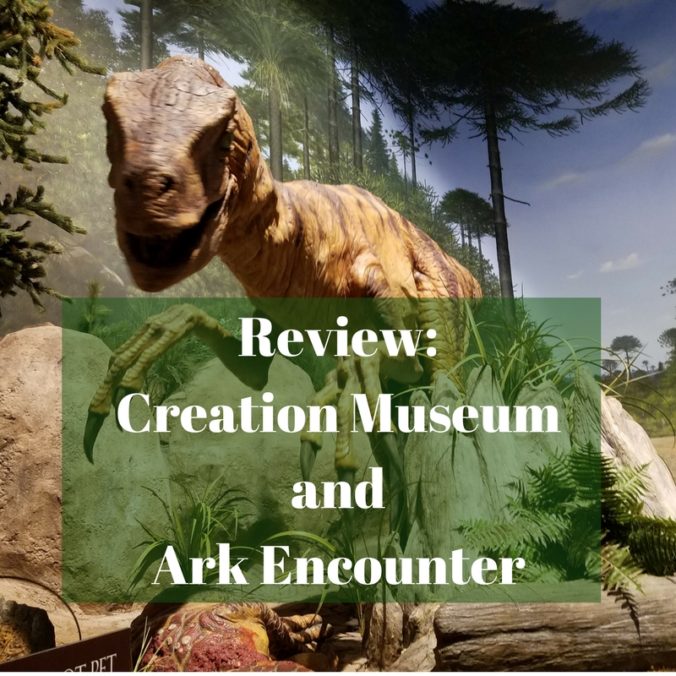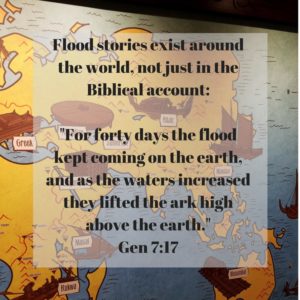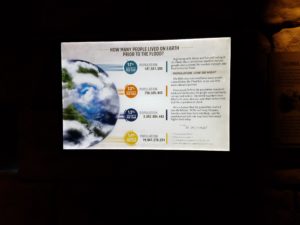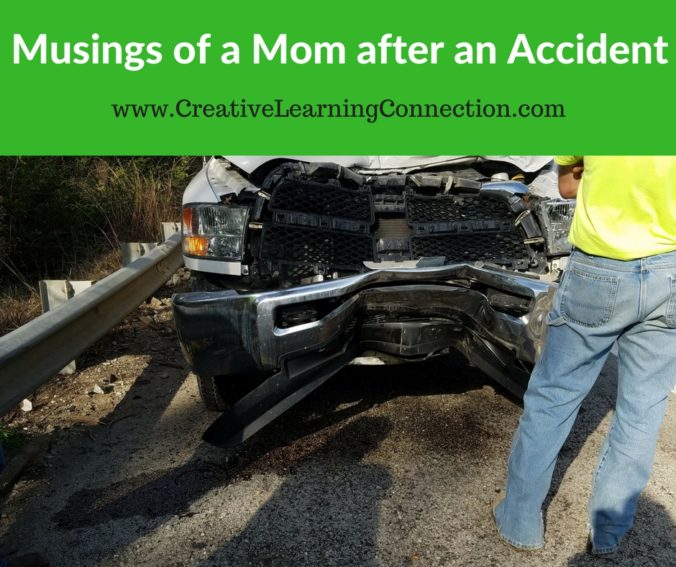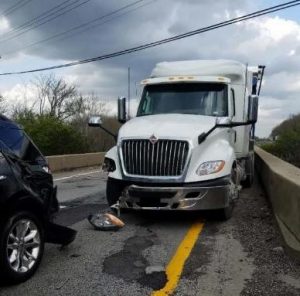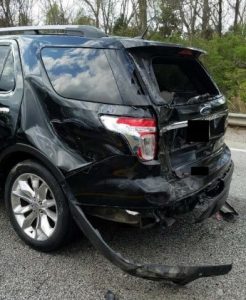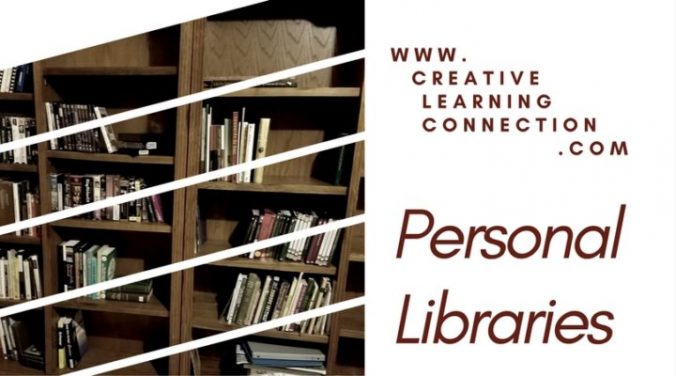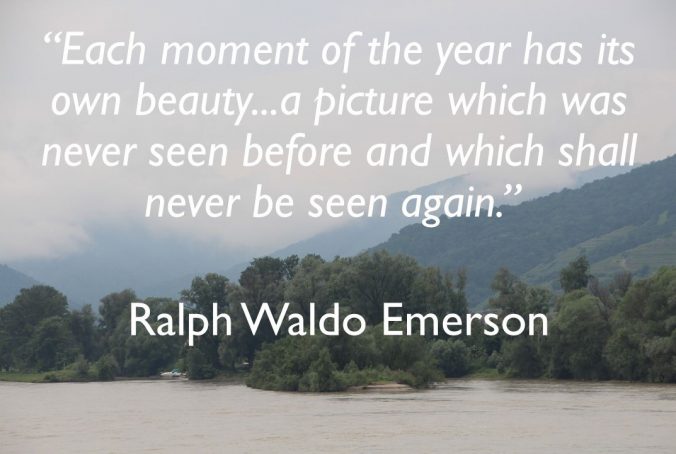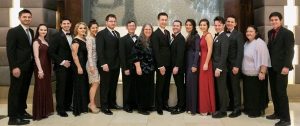I had originally planned to do a post today on the history of Memorial Day, but in my search for information I discovered “The American Presidency Project” (at http://www.presidency.ucsb.edu/) with its vast collection of presidential speeches from across the centuries of U.S. history. So, instead of a history lesson, today’s post is a collection of excerpts from many of the Memorial Day speeches various presidents have given. I hope you are as moved by some of these as I was.
President Benjamin Harrison, Laurel Hill Cemetery in Philadelphia ,1891
… How vividly come to my memory many battle scenes; not the impetuous rush of conflict, but the cover of sadness that followed victory. Then it was our sad duty to gather from the field the bodies of those who had given the last pledge of loyalty. There is open to my vision more than one yawning trench in which we laid the dead of the old brigade. We laid them elbow touching elbow in the order in which they had stood in the line of battle. We left them in the hasty sepulcher and marched on…
President William G. Harding , Arlington National Cemetery, 1923
…This is the special day of the nation’s gratitude, most genuinely felt and most gladly expressed. I do not believe republics are ungrateful. They may sometimes have the seeming of ingratitude, but since republics must be like the citizens who constitute them, we are bound to believe our Republic full of the gratitude which animates our citizenship.
…And I like to think of the individual citizen as a veteran of our contending forces in peace as well as a defender in war, who deserves likewise the gratitude of his countrymen. It little matters what war one served in. The supreme offering of life on the altar of American patriotism was the same in every one. No man could offer more. It calls for gratitude unlimited and unfailing.
…Yes, we are met in memory of the fallen, but I can not escape the thought that the real compensation comes to the living. The fallen do not, can not know of our remembrance of them, but the living may take to their breasts the consolation that the republic does love and revere, and comfort ourselves in so doing. Just as sure as present-day civilization endures, just so sure will the Americans of next year and the next century and the century after that be meeting gratefully on Memorial Day to pay memory’s tribute to the soldier dead who had served the Republic. Veterans marching near the shadows, but with heads erect and hearts all brave; veterans of middle age, who look back on marvelous achievement and to the future for still greater; veterans of youth, with the seriousness of life mostly before them, starting with the supreme experience—all may go on, assured of a becoming and grateful remembrance, which is chief among the compensations of life.
…It is not enough to seek assurance for ourselves. I believe it a God-given duty to give of our influence to establish the ways of peace throughout the world. We cannot guarantee, but we can promote the peaceful adjustment of disputes, we can aid in the establishment of the agencies of peace, we can be influential in committing the world to the triumphs of peace and make hateful to humankind the spoils of war.
Calvin Coolidge in 1925 at the Arlington National Cemetery
For those who are the inheritors of a noble estate and a high place in the world, it is a good thing to pause at intervals and consider by what favor of fortune and of ancestry their lines have fallen in such pleasant places. Thus to meditate upon that course of events, which has given them what they have and made them what they are, will tend to remind them how great is their debt and how little is their share of merit.
This is the day on which the American people each year acknowledge that they have such a debt. It has been set aside that a grateful nation may do fitting honor to the memory of those who have made the greatest and most voluntary contribution to it. Here about us, in this place of beauty and reverence, lies the mortal dust of a noble host, to whom we have come to pay our tribute, as thousands of other like gatherings will do throughout our land. In their youth and strength, their love and loyalty, those who rest here gave to their country all that mortality can give. For what they sacrificed we must give back the pledge of faith to all that they held dear, constantly renewed, constantly justified. Doing less would betray them and dishonor us.
To such a memorial as exists here we can only come in a spirit of humility and of gratitude. We can not hope to repay those whom we are assembled to honor. They were moved by a noble conception of human possibilities and human destiny. But we can undertake to find what was their inspiration and seek to make it our guide. By that they will be recompensed.
…Our gathering here to-day is in testimony of supreme obligation to those who have given most to make and preserve the nation. They established it upon the dual system of state government and federal government, each supreme in its own sphere.
Herbert Hoover in 1931 at Valley Forge
WE ARE upon the eve of the celebration of the 200th anniversary of the birth of George Washington. It is, therefore, appropriate that our observance of Memorial Day should this year be at this place, so intimately associated with the moral grandeur of the Father of our Country.
This national shrine needs no description; the events enacted here require no recounting to the American people. The very name, Valley Forge, swells within us a pride of nationality. These peaceful fields hold a glory peculiarly their own. The sufferings of Washington’s army in that dreadful winter of privation have made this place famous among all men.
It was not the glory of battle for which these fields are remembered. No great battle was fought here. It was not the pomp of victory, for no martial triumph was won here. It was not the scene where peace was signed by which independence of a great nation was won. It was not the tombs of courageous men who, facing the enemy, gave the supreme sacrifice for their country to which we bow in reverence. A thousand other fields mark the courage, the glory, the valor, the skill, the martial triumph of our race. Yet the instinct and the judgment of our people after the abrasion of the years has appraised this place as a foremost shrine in the War of Independence and in our Nation. It is a shrine to the things of the spirit and of the soul.
It was the transcendent fortitude and steadfastness of these men who in adversity and in suffering through the darkest hour of our history held faithful to an ideal. Here men endured that a nation might live.
George Washington and his men at any moment could have accepted the counsels of an easy path to an easy end of their privations. They could have surrendered their ideals to the widespread spirit of despair and discouragement. They could have abandoned their claims to freedom. They could have deserted their hopes and forsaken their faith. Instead, they chose the harder way of steadfast fortitude and for many of death.
Here Washington and his little band of hungry and almost naked patriots kept alive the spark of liberty in the lowest hours of the Revolution. They met the crisis with steadfast fortitude; they conserved their strength; they husbanded their resources; they seized the opportunity, which, with the turn and the tide of war, led on to victory. It was a triumph of character and idealism and high intelligence over the counsels of despair, of prudence, and material comfort. This was one of those moral victories that are the glory of the race. Without such victories the life of man would descend to a sheer materialism for “where there is no vision the people perish.” Lacking these high inspirations mankind could claim no distinction higher than the beasts of the field, that sing no songs, dream no dreams, inspire no hope, and grasp no faith.
It is this high spirit that we commemorate when we pay our yearly tribute of reverence to those who in all wars have stood steadfast and those who have died in the service of our country. Our citizens in every war have flocked to arms at the call of country. They have responded willingly, because in every emergency they have had up before them an ideal of liberty and the freedom of their country. Some wars in history have been instigated by old and cynical men for cruel or selfish reasons. Some wars have been fought for power and possessions. The ends of some wars could have been more nobly won and more wisely won by patience and negotiation. But war for liberty has endowed the race not alone with the most precious possessions of freedom but has inspired every succeeding generation with that idealism which is the outpouring of man’s spiritual nature.
…No one who reviews the past and realizes the vast strength of our people can doubt that this, like a score of similar experiences in our history, is a passing trial. From it will come a greater knowledge of the weaknesses of our system, and from this knowledge must come the courage and wisdom to improve and strengthen us for the future. Numerous are the temptations under the distress of the day to turn aside from our true national purposes and from wise national policies and fundamental ideals of the men who builded our Republic. Never was the lure of the rosy path to every panacea and of easy ways to imagined security more tempting.
President Lyndon B. Johnson, Arlington, 1966
Peace does not come just because we wish for it. Peace must be fought for. It must be built stone by stone.
In the first half of this century we learned that there can be no peace if might makes right–if force used by one nation against a weaker nation is ever permitted to succeed. We have learned that the time to stop aggression is when it first begins. And that is one reason we are in South Vietnam today.
Modern weapons and means of communications, even more than common aspirations, have created a single world community. There is no going back. This is the way it will be as far ahead as any of us can see. We can only go forward to help make that community one in which nations respect the rights of other nations and live at peace with one another.
For the American interest will be well served if our children grow up in a world of independent nations capable of assuming collective responsibility for the peace. Our interest–and the interest of world peace-will not be served if nations continue to violate the independence of other nations.
…On this Memorial Day, it is right for us to remember the living and the dead for whom the call of their country has meant much pain and sacrifice.
And so today I remind all of my fellow countrymen that a grateful Nation is deeply in their debt.
President Richard Nixon in 1969
ON MEMORIAL DAY, the American people unite to pay tribute to the many brave men and women who have given their lives in the service of their country. We pause to reflect upon the courage and sacrifice of those who responded when their nation called, who left home and family to take up arms on distant shores to ensure to posterity the blessings of peace and freedom. We render our thanks and express our gratitude, for we have not forgotten what they did or the price they paid.
…For the heroism and sacrifice displayed by the American fighting man, past and present, we are indeed filled with pride and gratitude.
President Gerald Ford in 1976 at Arlington
There is no higher honor or more solemn privilege than to represent our Nation in paying tribute to its honored dead. In this, our 200th year, this day and this hallowed ground take on a very special meaning. As we mark this anniversary of our national independence, we must remember that the Bicentennial celebrates more than a successful political revolution which freed America from foreign rule. The founding of our Nation was more than a political event; it was an act of faith, a promise to Americans and to the entire world. The Declaration of Independence declared that people can govern themselves, that they can live in freedom with equal rights, that they can respect the rights of others.
In the two centuries that have passed since 1776, millions upon millions of Americans have worked and taken up arms when necessary to make that dream a reality. We can be extremely proud of what they have accomplished. Today, we are the world’s oldest republic. We are at peace. Our Nation and our way of life endure. We are free.
All who come to Arlington this Memorial Day must reflect upon the sacrifices made by those continually brave Americans who lie in rest on these hillsides as beneath silent markers at Valley Forge, Gettysburg, and Pearl Harbor. Their courage won a revolution. Their bravery preserved our Republic. Their perseverance kept the peace and ensured a heritage of freedom.
It is through their sacrifice that we have a Bicentennial. It is through their sacrifice that we, the living, have inherited a sacred burden, a trust to honor the past by working for the future. Other nations have risen to great heights only to weaken in their resolve. We must not repeat their error.
A nation born of faith and carried forward by action requires from each of us a commitment to advance individual liberty and to maintain our guard against those who would threaten our freedom. Although we thank God that no Americans are dying in battle today, we must renew our resolve to use both our moral leadership and our material strength to keep the peace.
Over a century ago another President stood before America’s fallen at Gettysburg and spoke words that have rung through the decades of our history. They are particularly appropriate today.
“It is rather for us to be here dedicated to the great task remaining before us-that from these honored dead we take increased devotion to that cause for which they gave their [the] last full measure of devotion–that we here highly resolve that these dead shall not have died in vain–that this nation, under God, shall have a new birth of freedom–and that government of the people, by the people, for the people, shall not perish from the earth.”
Ronald Reagan’s Memorial Day Speech in 1982
In America’s cities and towns today, flags will be placed on graves in cemeteries; public officials will speak of the sacrifice and the valor of those whose memory we honor.
In 1863, when he dedicated a small cemetery in Pennsylvania marking a terrible collision between the armies of North and South, Abraham Lincoln noted the swift obscurity of such speeches. Well, we know now that Lincoln was wrong about that particular occasion. His remarks commemorating those who gave their “last full measure of devotion” were long remembered. But since that moment at Gettysburg, few other such addresses have become part of our national heritage—not because of the inadequacy of the speakers, but because of the inadequacy of words.
I have no illusions about what little I can add now to the silent testimony of those who gave their lives willingly for their country. Words are even more feeble on this Memorial Day, for the sight before us is that of a strong and good nation that stands in silence and remembers those who were loved and who, in return, loved their countrymen enough to die for them.
Yet, we must try to honor them—not for their sakes alone, but for our own. And if words cannot repay the debt we owe these men, surely with our actions we must strive to keep faith with them and with the vision that led them to battle and to final sacrifice.
Our first obligation to them and ourselves is plain enough: The United States and the freedom for which it stands, the freedom for which they died, must endure and prosper. Their lives remind us that freedom is not bought cheaply. It has a cost; it imposes a burden. And just as they whom we commemorate were willing to sacrifice, so too must we—in a less final, less heroic way—be willing to give of ourselves.
It is this, beyond the controversy and the congressional debate, beyond the blizzard of budget numbers and the complexity of modern weapons systems, that motivates us in our search for security and peace…
The willingness of some to give their lives so that others might live never fails to evoke in us a sense of wonder and mystery. One gets that feeling here on this hallowed ground, and I have known that same poignant feeling as I looked out across the rows of white crosses and Stars of David in Europe, in the Philippines, and the military cemeteries here in our own land. Each one marks the resting place of an American hero and, in my lifetime, the heroes of World War I, the Doughboys, the GI’s of World War II or Korea or Vietnam. They span several generations of young Americans, all different and yet all alike, like the markers above their resting places, all alike in a truly meaningful way.
…As we honor their memory today, let us pledge that their lives, their sacrifices, their valor shall be justified and remembered for as long as God gives life to this nation. And let us also pledge to do our utmost to carry out what must have been their wish: that no other generation of young men will every have to share their experiences and repeat their sacrifice…
President George Bush in 1989
As we gather today, it is dawn in America, Memorial Day weekend. And as the Sun rises and the summer begins, the images both here and at home are of countries that are prosperous and secure, countries confident of their place in the world and aware of the responsibility that comes with that place. Soon that lone soldier at Arlington will resume his paces, 21 steps in each direction, the changing of the guard precisely on the half hour. And at Gettysburg, the schoolchildren will scatter flowers on other unknown graves, blue and gray, side-by-side, Americans.
On Memorial Day, we give thanks for the blessings of freedom and peace and for the generations of Americans who have won them for us. We also pray for the same strength and moral reserve demonstrated by these veterans, as well as for the true and lasting peace found in a world where liberty and justice prevail.
President William Clinton in 1993
We come together this morning, along with our countrymen and women in cities across the land, to honor those who died that we might live in freedom, the only way that Americans can ever truly live. Today we put aside our differences to better reflect on what unites us. The lines so often drawn between and among us, lines of region or race or partisanship, all those lines fall away today as we gaze upon the lines of markers that surround us on these hallowed hills. The lines of difference are freedom’s privilege. The lines of these markers are freedom’s cost.
Today Americans all across our land draw together in shared experience and shared remembrance. And whether it is an older veteran in Florida, or a teenager in New Mexico, or a mother in Wisconsin, all today will bow their heads and put hand to heart. And without knowing each other, still we will all be joined in spirit, because we are Americans and because we know we are equal shareholders in humanity’s most uplifting dream.
…In honoring those who died in the defense of our country, we must never neglect to honor as well our living American veterans. The Nation owes a special debt to the millions of men and women who took up posts at home or abroad to secure our defenses or to fight for our freedom. Because of what they have done for us, their health and well-being must always be a cause for our special concern.
Here by the Tomb of the Unknown Soldier, we renew our Nation’s solemn pledge also to the POW and MIA families from all wars, a pledge to provide not just the prayers and memorials but also to the extent humanly possible to provide the answers you deserve. And we vow, with the new Korean War Memorial project finally underway, that no future conflict, if conflict there must be, must ever be regarded as a forgotten war. The inscription on the Tomb of the Unknown Soldier says that he is, quote, “Known only to God.” But that is only partly true. While the soldier’s name is known only to God, we know a lot about him. We know he served his country, honored his community, and died for the cause of freedom. And we know that no higher praise can be assigned to any human being than those simple words.
Today we are at peace, but we live in a troubled world. From that flag and from these, our honored dead, we draw strength and inspiration to carry on in our time the tasks of defending and preserving freedom that were so nobly fulfilled by all those we come here to honor in this time. In that effort and in the presence of those buried all around us, we ask the support of all Americans in the aid and blessing of God Almighty.
President George W Bush in 2001
Every Memorial Day we try to grasp the extent of this loss and the meaning of this sacrifice. And it always seems more than words can convey. All we can do is remember and always appreciate the price that was paid for our own lives and for our own freedom.
Today, in thousands of towns across this great land, Americans are gathered to pay their own tributes. At 3 o’clock this afternoon Americans will pause for a moment of remembrance. They will meet at monuments or in public squares or, like us, in places where those we honor were laid to rest.
More than any words we say, the truth is told in the things we see, in markers, in dates, in names around us…Within these 200 acres are the remains of men and women who died young, some very young. Walking along these paths, a visitor to this national cemetery might view these markers as one great national loss, and that is certainly the case. But we must remember, for many who come here, there is one marker that will always stand out among all the others. In their eyes, it lies alone.
For one woman, Memorial Day brings thoughts of the father she never knew. She recalled as, a young child, learning to pray the words “Our Father, who art in heaven,” thinking she was talking to her own father.
For others, there is the memory of the last kiss as the train pulled away, a last wink and parting wisecrack from a big brother, a brave smile from a son who seemed like a boy. And then there was the telegram that came.
To those who have known that loss and felt that absence, Memorial Day gives formal expression to a very personal experience. Their losses can be marked but not measured. We can never measure the full value of what was gained in their sacrifice. We live it every day in the comforts of peace and the gifts of freedom. These have all been purchased for us.
From the very beginning, our country has faced many tests of courage. Our answer to such tests can be found here on these hills and in America’s cemeteries, from the islands of the Pacific to the north coast of France.
And on Memorial Day, we must remember a special group of veterans, Americans still missing and unaccounted for from Vietnam, Korea, the cold war, and World War II. We honor them today. They deserve and will have our best efforts to achieve the fullest possible accounting and, alive or dead, to return them home to America.
It is not in our nature to seek out wars and conflicts. But whenever they have come, when adversaries have left us no alternative, American men and women have stood ready to take the risks and to pay the ultimate price. People of the same caliber and the same character today fill the ranks of the Armed Forces of the United States. Any foe who might ever challenge our national resolve would be repeating the grave errors of defeated enemies. Because this Nation loves peace, we do not take it for granted. Because we love freedom, we are always prepared to bear even its greatest costs.
Arriving here today, all of us passed the strong, straight figures of men and women who serve our country today. To see their youth and discipline and clarity of purpose is humbling to a Commander in Chief. They are the new generation of America’s defenders. They follow an unbroken line of good and brave and unfaltering people who have never let this country down.
Today we honor those who fell from the line, who left us, never knowing how much they would be missed. We pray for them with an affection that grows deeper with the years. And we remember them, all of them, with the love of a grateful Nation.
God bless America.
President Barack Obama in 2014
Today, in small towns across America, in cemeteries throughout our country and around the world, and here on these solemn hillsides, the families of our fallen share stories of the lives they led. Our hearts ache in their absence. But our hearts are also full, full in knowing that their legacy shines bright in the people that they loved the most. Through almost unimaginable loss, these families of the fallen have tapped a courage and resolve that many of us will never know. And we draw comfort and strength from their example. We draw strength from the promise of their children
… For the parents who have lost a child, for the husbands and wives who have lost a partner, for the children who have lost a parent, this day and this place are solemn reminders of the extraordinary sacrifice they have made in our name. But today reminds us as well that for these family and for their comrades-in-arms, their service to our Nation endures. There are few who truly understand what it means to send a child into war or to watch a battle buddy give his life to save others. On this Memorial Day, and every day, these are the families and veterans we’re sworn to look after.
And so here, on these hallowed grounds, we rededicate ourselves to our sacred obligations to all who wear America’s uniform and to the families who stand by them always: that our troops will have the resources they need to do their job; that our Nation will never stop searching for those who’ve gone missing, who are held as prisoners of war; that, as we’ve been reminded in recent days, we must do more to keep faith with our veterans and their families and ensure they get the care and benefits and opportunities that they’ve earned and that they deserve. These Americans have done their duty. They ask nothing more than that our country does ours, now and for decades to come.
The fallen patriots we memorialize today gave their last full measure of devotion. Not so we might mourn them, though we do. Not so that our Nation might honor their sacrifice, although it does. They gave their lives so that we might live ours: so that a daughter might grow up to pursue her dreams; so that a wife might be able to live a long life, free and secure; so that a mother might raise her family in a land of peace and freedom. Everything that we hold precious in this country was made possible by Americans who gave their all. And because of them, our Nation is stronger, safer, and will always remain a shining beacon of freedom for the rest of the world.
May God bless the fallen and all those who serve. May God watch over their families. And may God continue to bless the United States of America.
President Donald Trump in 2017
Words cannot measure the depth of their devotion, the purity of their love, or the totality of their courage. We only hope that every day we can prove worthy not only of their sacrifice and service, but of the sacrifice made by the families and loved ones they left behind. Special, special people.
… We can never replace them. We can never repay them. But we can always remember. And today that is what we are doing: We remember. Words cannot wipe away the tears or bring back those smiling faces. But if Americans just take the time to look into your eyes and tell you how much we thank you and how dearly we pray for you and how truly we love you, then hopefully, you can find solace through your pain. And every time you see the Sun rise over this blessed land, please know your brave sons and daughters pushed away the night and delivered for us all that great and glorious dawn.
Thank you. God bless you. God bless our fallen heroes. God bless their families. God bless our military. And God bless the United States of America.
